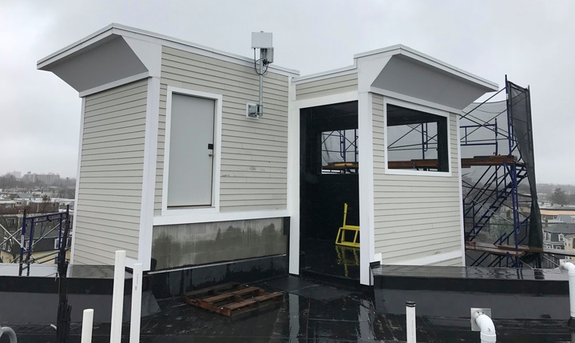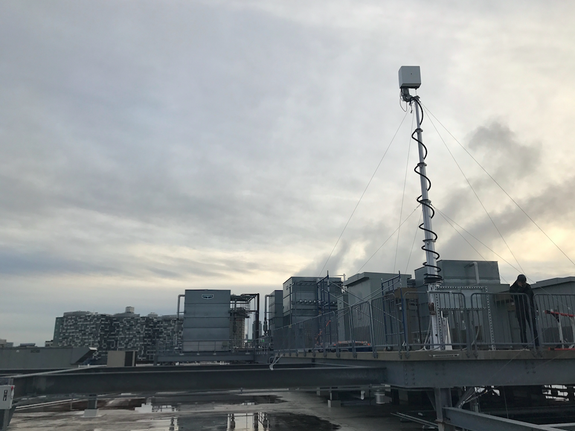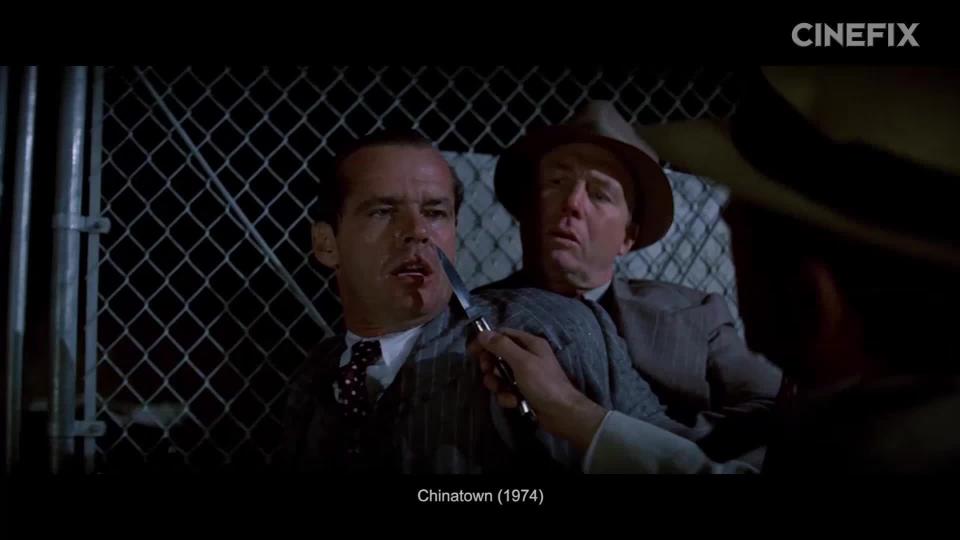Silicon Valley's fake disruptors have nothing on Chet Kanojia

You don't threaten entire industries without making some enemies—or spending some time in court. That's a lesson Chet Kanojia has lived and learned.
A few years ago, Kanojia took on some of the biggest media companies in the U.S. with his streaming TV startup Aereo. Well before the recent explosion of internet-based TV bundles, Aereo became a tech phenom by streaming broadcast channels over the internet for a small monthly fee.
It had the feel of the next big thing. The company had customers, funding, and no immediate competitors. It was all going to plan—up until the Supreme Court stopped him. It's the kind of defeat that can cripple an entrepreneur.
Not Kanojia. Over tequila shots with colleagues on Aereo's final day, he was already hatching his next move.
"There's no obligation, but if you walk in we can't promise it's going to work," he told some of his remaining staffers, many of whom took him up on the offer.
Almost three years after that ruling, I'm riding an elevator with Kanojia up to a loft in Charlestown, Massachusetts. He's going to show me a piece of that technology Kanojia teased over tequila shots.
The elevator arrives, and we walk into a penthouse apartment, where a white triangle with a screen sits on a window sill.
"This is part of Starry," he said.
Starry is Kanojia's new venture, a way to provide cheap, wireless internet access to people's homes. Most people only have one choice for high-speed internet, a choke point that causes any number of issues and is central to the ongoing net neutrality debate.
This device is an internet router, but it's just the tip of a much larger, technology-sophisticated system that includes various pieces of equipment set up across a city to create super-fast, wireless access. For now, Starry Internet is only running as a beta test in the greater Boston area. The company is on track to launch in several additional cities by the end of this year.

Image: starry
If Starry works, it could mean big things for the internet, not just from a business perspective.
It's a big if, the kind Kanojia deals in.
"What we're doing and what other people will do it's not only critical, it's necessary," Kanojia said.
'All roads lead to India'
Kanojia, 47, is a disruptor at a time when "disruptor" is thrown around by Silicon Valley poseurs with a new food delivery app.
He immigrated from India in 1991 and has expertise in mechanical engineering, computer systems engineering, and the telecommunications industry. He gained notoriety for Aereo, which was well on its way to irrevocably changing the TV business. Prior to that, he had run Navic Networks, which developed data-collection technology for cable companies. He sold that startup to Microsoft in 2008 reportedly for $250 million.
Like many of tech's most impactful entrepreneurs, his story started outside the United States. He was born in Bhopal, India. Bhopal is known for being the site of one of the worst industrial accidents in human history. Thousands of people died in 1984 after a nearby pesticide plant leaked toxic gas.
He gravitated to engineering from a young age. He also saw what it meant to have gatekeepers.
When he was growing up in India, young people took one national exam that determined the level of university they could attend. That single exam set children like Kanojia on one path with little ability to veer from it.
"All roads lead to India. Growing up in India there’s a hierarchy because there's so much competition, there's not a lot of opportunity," he said. "If you were an engineer or a doctor, you had a path forward. Everybody else, you had to figure it out."
That experience of fighting for a spot and then being unable to veer from it informed Kanojia's views on technology and business. You can be successful, sure, but within the system. Entrepreneurship was, for the part, absent, meaning the status quo was never challenged.
Kanojia now relishes that opportunity. Both Aereo and now Starry have been squarely aimed at bringing change to markets in which big companies held outsized power.

Image: starry
"Unchecked corporate interests can do a lot of damage, and there are new age corporate interests that tend to be more 'Do no evil,'" Kanojia said.
"To me, technology it allows you to transform things, and that’s the coolest part about it all. It changes everything," he added.
Aereo's rise and fall
Starting in 2012, Aereo looked like a winner. Kanojia raised almost $100 million for the company, which grew quickly. He had the backing of media mogul Barry Diller.
FirstMark Capital was one of Aereo's investors. Amish Jani, managing director of the firm, had met Kanojia in early 2001 back when he was running Navic. The company had raised some early-stage capital, not that anyone could tell. Jani recalled the first meeting inside Navic's second offices, a tight-packed room, stacked with boxes and desks side by side.
"What you got the sense immediately was someone who is very intelligent about technology and products and how they can be leveraged to disrupt an industry," Jani said.
"You saw someone who was very hard-working, and you saw someone who was very gritty about it. This was right around the bubble. Other companies had fancy stuff left and right. [Navic employees] were passionately focused on a mission," he continued.
Aereo, the project he started after leaving Microsoft in 2010, worked by operating clusters of tiny antennas that streamed broadcast TV to users. It was a hack, but one that seemed to have found a legal loophole around the rules against rebroadcasting over-the-air TV.
Various courts agreed. The broadcasters sued Aereo and lost just about every time until the Supreme Court heard the case. The judges ruled 6-3 that Aereo had exploited a loophole to get around copyright law.
But Aereo wasn't a failure—to Kanojia and to investors. Jani put Aereo on the list of historical investments for his biography. Rather than an acquisition or a public listing below Aereo, it reads: U.S. Supreme Court.
"We built a lot of great momentum and Chet single-handedly accelerated the movement of TV anywhere," Jani said. "Now every person expects to see a live-stream of their favorite game on their device, no matter where they are. [Aereo] was not a failure. It was masterful execution."
"Was" being the operative word there. Aereo's execution was too masterful. A Supreme Court ruling and a few tequila shots later, Starry became the new gig.
Enter Starry
Kanojia already had a backup plan—and this one involved a loophole as well, though with far fewer legal issues.
It is very expensive to build new internet infrastructure, particularly the "last mile," which refers to the connections used by normal consumers. Most Americans have no more than one option here. Kanojia recognized this as a problem for Aereo, as it is for every other tech company that operates on the internet. For all the wide range of choices consumers have for services on the internet, it's all coming down one pipe. And that meant a gatekeeper—the kind that Kanojia doesn't particularly like.
So he, along with his business partner Joe Lipowski, who serves as Starry's chief technology officer, started thinking about how to fix that.
"If Aereo succeeded, Aereo was going to need it. If Aereo failed, we were going to need new gigs," Kanojia said.
Starry's main product is its router. It looks like Google Home and Eve from Pixar's Wall-E had a baby. Which is to say, it looks like something I wouldn't mind having on my window sill. But why would I need a router this fancy?
Well, the simple answer was it provides fast, reliable, in-home WiFi.
In the apartment, Kanojia fired up "Stranger Things" on Netflix. It's a controlled demo, but it is fast. His experience with Aereo taught him the risks that a company like Netflix faces (or at least faced when it wasn't quite as powerful as it is now) in trying to stream video.
If only a few companies control the pipes, you're going to have problems. This is the essence of the net neutrality debate.
"If you don’t have net neutrality, how does Netflix continue to make the investment it needs to make?" Kanojia said. "When it doesn’t consider the cost to the consumer, the power will be in two to three companies."
The 10-year plan (as of this moment)
Unlike Facebook CEO Mark Zuckerberg, Kanojia isn't following a 10-year plan.
"The one certainty in a 10-year plan is in three months, it'll change," Kanojia said with a smile when asked about long-term strategy.
"If there is a 10-year plan, it's find and hire the best," Lipowski said.
Kanojia said he doesn't have a hard time recruiting for his new venture.

Image: kerry flynn/mashable
That's one reason why Starry's operations are based in Boston, where nearby Harvard and MIT students are apparently eager to solve challenging problems in the engineering industries, not just build the next Facebook.
"I think a lot of us now are utterly spoiled because each project is more complex and more difficult and more impactful," Kanojia said.
Kanojia has a lot of work to do. As CEO, his time is split between calls with investors (Starry raised $30 million in a Series B last year, totaling $63 million in funding), hiring, operations, design, sales, and new tech. Like many entrepreneurs, he's rarely off.
The majority of Starry's 100 employees do not come from traditional backgrounds in the telecommunications industry. They have some people who worked in defense and other software engineers who have spent most of their past writing mobile apps.
"It's so fun to sit in this mix because they don’t speak each other’s language. It forces them to build a solid API across people," Kanojia said, using the tech jargon of API, application program interface, as a metaphor for creating human relationships.

Image: KERRY FLYNN/MASHABLE
Starry is still in early phrases, but it does have a product in the marketplace. An undisclosed number of Starry Stations have been installed across the country. Starry Internet is live as a beta service in Boston. The station itself is pretty, and that's part of the selling point.
The biggest question for Starry remains the core technology. It relies on something called "millimeter wave band active phased array" to provide internet access over the air. It's a technology that others have tried before but failed to make into something ready for consumers.
Kanojia and Starry say they have succeeded where others failed. The company is promising 200 megabit per second speed for $50 per month.
Next up for Starry is perfecting the technology and then, obviously, expanding to markets.
"We'll make mistakes," Virginia Lam, Starry's communications chief, said.
What else would you expect from a true disruptor?
WATCH: The best plot points in movie history


